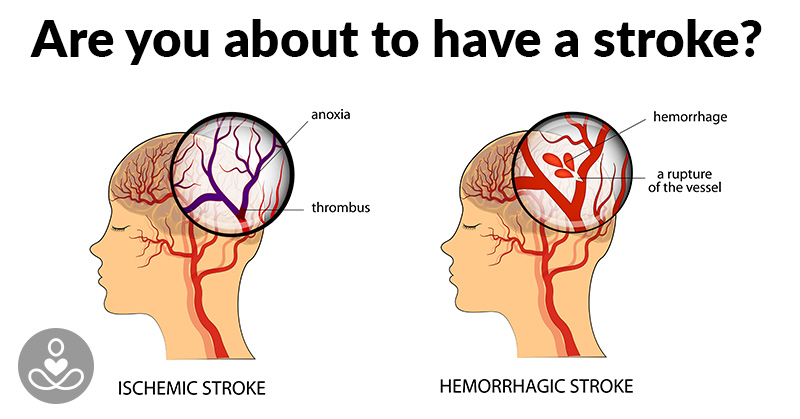Strokes, which are medical emergencies caused by lack of blood flow to the brain, are the 5th leading cause of death in the United States. Every forty seconds, someone has a stroke. Every four minutes, someone dies of one. Each year, more women than men have strokes. There is no proven reason for this, but women statistically live longer than men, and age is a major risk factor for increased chances of having a stroke. For African Americans, the risk of stroke is also higher, with it being the 3rd leading cause of death, making African Americans the most stroke-susceptible racial group in the United States.
What Causes Strokes?
There are two main types of strokes, ischemic and hemorrhagic. Ischemic strokes are caused by blood clots (i.e. the brain is unable to receive blood and the corresponding body part is affected) and hemorrhagic strokes are caused by arteries in the brain either leaking blood or bursting.
The main cause of blood clots is fatty deposits in the arteries. Hemorrhaging can be caused by hypertension (stress), blood thinning medication, trauma, and weakness in the walls of blood vessels. In short, strokes are often caused when existing medical conditions take their toll on the body’s arteries and blood cells.
Early Warning Signs and Symptoms of Strokes
Strokes happen quickly, so there often isn’t any obvious warning before it’s happening. Signs that a stroke is occurring are:
- Sudden numbness, particularly limited to one side of the body
- Sudden confusion
- Difficulty speaking or understanding words
- Vision problems
- Lack of balance
- Dizziness
- Trouble walking
- Headaches
These stroke symptoms highlight how dangerous strokes can be for people with existing medical conditions. If you often have headaches or trouble with numbness, you may be inclined to “wait it out”. If a stroke happens and goes undetected, your body will not get the medical treatment it needs. So it’s important to always be aware of your body and be sure to address ongoing medical conditions so they don’t hide signs of emergency situations.
Stroke Prevention Methods
Because strokes can happen suddenly, it’s important to be active in stroke prevention, even if you don’t think you’re at risk. If you feel you are at greater risk for stroke because of pre-existing conditions, many communities have medical resources specifically for communities at higher risk. Be sure to reach out to get the help you need.
There are daily steps you can take to prevent your risk of stroke. These include:
- Eating a healthy diet– That promotes optimal blood flow and circulatory health. This includes foods like nuts, greens, dark chocolate, citrus fruits, tomatoes, garlic, and green tea. A plant-based diet is high in the nutrients needed to prevent stroke. Foods rich in potassium and magnesium are also beneficial.
- Avoiding processed foods– That are high in sodium or deplete uric acid levels (like dairy).
- Exercising– Regularly to encourage proper blood flow
- Not smoking– As nicotine and tobacco inhibit circulatory function and lower immune system function as well.
- Avoid excesses drinking– As alcohol puts physical stress on your body.
- Avoid foods which increase uric acid – Gout is known to increase the risk of stroke, so limit your risk of gout by steering clear of high purine foods including: alcohol, bacon, turkey, anchovies, sardines, trout, haddock, and organ meats.
You should also regularly monitor your blood pressure and cholesterol, as changes in these numbers can indicate increased risk for stroke and other serious conditions.
Strokes are extremely common in the United States and it’s important to maintain your health in ways that prevent strokes from occurring. Luckily, these practices tend to improve your overall health too. What methods do you take to stay healthy and reduce your risk of stroke? Share in the comments!

